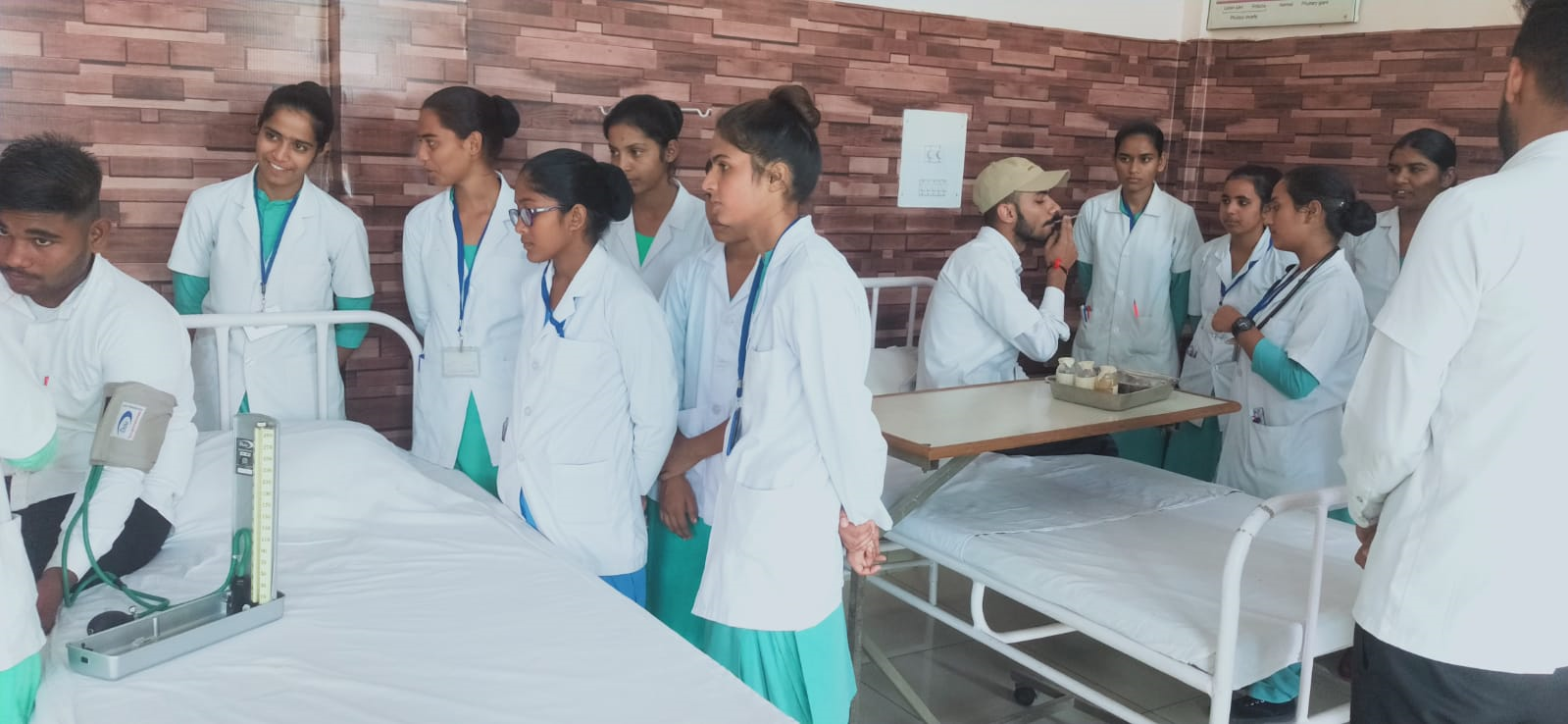GNM (General Nursing and Midwifery) Admission 2025-26

The GNM (General Nursing and Midwifery) course is a diploma-level program designed to prepare individuals for a comprehensive role in nursing and midwifery care. It is a popular choice for those aspiring to enter the healthcare sector in India.
Key Aspects:
- Full Form: General Nursing and Midwifery.
- Course Level: Diploma.
- Duration: Typically 3 years. Some sources mention an additional 6-month internship, making the total duration 3.5 years in such cases. This internship is crucial for gaining practical, hands-on experience.
- Focus: The course aims to equip students with the knowledge and skills to provide holistic nursing care to individuals, families, and communities. It covers general healthcare, nursing, and midwifery, preparing nurses who can function effectively in both hospital and community settings.
Eligibility Criteria:
- Educational Qualification:
- Candidates must have passed their 10+2 (or equivalent) examination from a recognized board.
- Students from Science, Arts, or Commerce streams are generally eligible. However, preference is often given to students with a Science background (Physics, Chemistry, and Biology - PCB).
- A minimum aggregate score of 40-50% in the 10+2 examination is usually required, though this can vary between institutions.
- English is typically a mandatory subject in 10+2.
- Candidates who have completed their 10+2 from the National Institute of Open School (NIOS) or State Open Schools recognized by the State Government are also often eligible.
- Some institutions may also admit candidates who have completed a vocational ANM (Auxiliary Nurse Midwife) course recognized by the Indian Nursing Council (INC), provided they meet the minimum percentage requirements.
- Age Limit:
- Minimum Age: Generally 17 years as of December 31st of the admission year.
- Maximum Age: Usually around 35 years, though this can vary by institution.
- Medical Fitness: Candidates are typically required to be medically fit.
- Gender: Both male and female candidates are generally eligible.
Admission Process:
- Merit-Based: Many institutions grant admission based on the marks obtained in the 10+2 qualifying examination.
- Entrance Exams: Some states or individual institutions conduct their own entrance examinations for GNM admissions. These exams assess the candidate's knowledge in relevant subjects and their aptitude for nursing.
- Counselling: Shortlisted candidates (based on merit or entrance exam scores) are usually called for a counselling session, which may include document verification and seat allotment.
- Application: Application forms are typically available on the official websites of the conducting bodies or institutions.
Syllabus Key Subjects:
The GNM curriculum is comprehensive and includes both theoretical knowledge and practical training. Key subjects often include:
- First Year:
- Anatomy and Physiology
- Microbiology
- Psychology
- Sociology
- Fundamentals of Nursing (including First Aid)
- Community Health Nursing - I
- Environmental Hygiene
- Health Education and Communication Skills
- Nutrition
- English
- Computer Education/Applications
- Second Year:
- Medical-Surgical Nursing - I & II
- Mental Health Nursing (Psychiatric Nursing)
- Child Health Nursing (Pediatric Nursing)
- Third Year (Part I):
- Midwifery and Gynecological Nursing
- Community Health Nursing - II
- Third Year (Part II - Internship): (if applicable as part of the 3.5-year structure)
- Nursing Education and Introduction to Research & Statistics
- Professional Trends & Adjustment
- Nursing Administration and Ward Management
- Practical experience in various clinical and community settings.
Career Prospects and Job Roles:
GNM graduates have a wide range of employment opportunities in both the public and private healthcare sectors. They are essential for the functioning of various healthcare facilities.
Employment Areas:
- Government and Private Hospitals
- Nursing Homes
- Clinics and Health Centres (PHCs, CHCs)
- Dispensaries
- Community Health Services
- NGOs and Charitable Hospitals
- Old Age Homes
- Educational Institutions (as clinical instructors or tutors after gaining experience)
- Military Nursing Services (after meeting specific requirements)
- Industrial Nursing
- Self-employment (e.g., home nursing)
Potential Job Roles:
- Staff Nurse
- Home Nurse
- Community Health Nurse
- Midwife
- ICU Nurse
- Ward Nurse
- School Health Nurse
- Industrial Nurse
- Nursing Tutor (with experience/further qualification)
- Forensic Nurse
Further Education:
After completing the GNM diploma, nurses can enhance their qualifications and career prospects through further studies:
- Post Basic B.Sc. Nursing: This is a 2-year degree course designed for GNM graduates to obtain a bachelor's degree in nursing.
- M.Sc. Nursing: After B.Sc. Nursing, one can pursue a Master's degree in various nursing specializations.
- Specialized Diploma/Certificate Courses: Nurses can also opt for short-term specialized courses in areas like critical care nursing, oncology nursing, pediatric nursing, etc.
Average Salary:
The salary for GNM nurses varies based on factors like the employing organization (government/private), location (urban/rural), experience, and skills. Entry-level salaries in India can range from approximately ₹2 Lakhs to ₹4 Lakhs per annum, with potential for growth with experience and further qualifications.
It is crucial to ensure that the GNM program and the institution are recognized by the Indian Nursing Council (INC) and the respective State Nursing Council to ensure the validity of the qualification for registration and employment.


